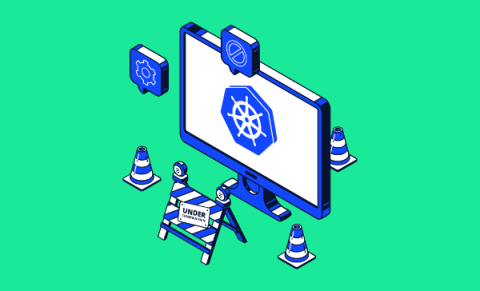Operations | Monitoring | ITSM | DevOps | Cloud
Komodor
#016 - Kubernetes for Humans Podcast with Marcelo Quadros & Juliano Martins (Mercado Libre)
Team Komodor Does Klustered with David Flannagan (AKA Rawkode)
An elite DevOps team from Komodor takes on the Klustered challenge; can they fix a maliciously broken Kubernetes cluster using only the Komodor platform? Let’s find out! Watch Komodor’s Co-Founding CTO, Itiel Shwartz, and two engineers – Guy Menahem and Nir Shtein leverage the Continuous Kubernetes Reliability Platform that they’ve built to showcase how fast, effortless, and even fun, troubleshooting can be!
Harnessing the Power of Metrics: Four Essential Use Cases for Pod Metrics
In the dynamic world of containerized applications, effective monitoring and optimization are crucial to ensure the efficient operation of Kubernetes clusters. Metrics give you valuable insights into the performance and resource utilization of pods, which are the fundamental units of deployment in Kubernetes. By harnessing the power of pod metrics, organizations can unlock numerous benefits, ranging from cost optimization to capacity planning and ensuring application availability.
Boosting Kubernetes Stability by Managing the Human Factor
As technology takes the driver’s seat in our lives, Kubernetes is taking center stage in IT operations. Google first introduced Kubernetes in 2014 to handle high-demand workloads. Today, it has become the go-to choice for cloud-native environments. Kubernetes’ primary purpose is to simplify the management of distributed systems and offer a smooth interface for handling containerized applications no matter where they’re deployed.
Striking the Balance: Tips for Enhancing Access Control and Enforcing Governance in Kubernetes
Kubernetes, with its robust, flexible, and extensible architecture, has rapidly become the standard for managing containerized applications at scale. However, Kubernetes presents its own unique set of access control and security challenges. Given its distributed and dynamic nature, Kubernetes necessitates a different model than traditional monolithic apps.
Komodor Announces GA of New Kubernetes Cost Optimization Capabilities
Kubernetes has revolutionized how we manage and scale containerized applications, the flip side of this robustness is often a rising cloud bill. As you navigate the complexities of cluster growth across teams and applications, cost management can become a genuine headache. Enter Komodor’s newly released Cost Optimization Suite. In this blog post, we’ll unpack how this feature-rich addition to the Komodor platform will empower you to optimize costs without sacrificing performance.
Leveraging Argo Workflows for MLOps
As the demand for AI-based solutions continues to rise, there’s a growing need to build machine learning pipelines quickly without sacrificing quality or reliability. However, since data scientists, software engineers, and operations engineers use specialized tools specific to their fields, synchronizing their workflows to create optimized ML pipelines is challenging.
Deploying a Python Application with Kubernetes
A powerful open-source container orchestration system, Kubernetes automates the deployment, scaling, and management of containerized applications. It’s a popular choice in the industry these days. Automating tasks like load balancing and rolling updates leads to faster deployments, improved fault tolerance, and better resource utilization, the hallmarks of a seamless and reliable software development lifecycle.











